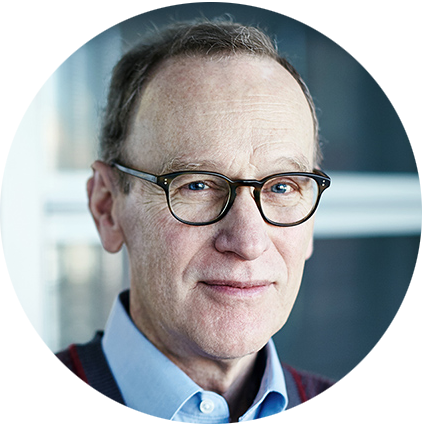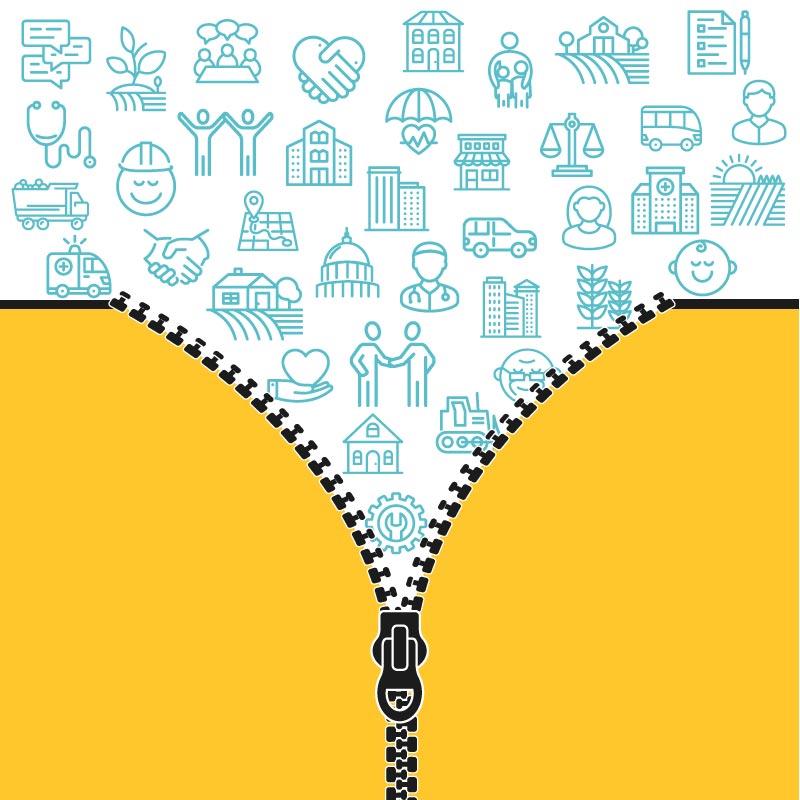
Missouri’s recent passage of Medicaid expansion was a significant step toward the long-term goal of everyone having access to affordable health care. The expansion of Medicaid presents numerous possibilities for us all to lean in and do our part to generate positive changes in health. It is worth reflecting on what’s next for keeping us on a path to promoting health and well-being and providing opportunities to thrive for all Missourians.
One straightforward task is the effective implementation of getting several hundred thousand newly eligible Missourians health coverage. This will also be essential for the potentially equally large number of Missourians who lose their employer-based insurance due to loss of jobs during the pandemic. The effort that implementation requires should not be underestimated. If done appropriately, it must include collaboration and thoughtful management on various levels – working with federal authorities and extensive cooperation among state agencies, health care providers, insurance companies, and nonprofit community organizations. Fulfilling the will of the people takes time, planning, resources, and commitment from public officials and private sector leaders – it does not happen automatically, and we should be both appreciative and vigilant as the implementation proceeds. Implementing Medicaid is yet another opportunity for us, as a state, to come together and prioritize the health of Missourians.
Medicaid expansion is also a sign that we the people want to move forward toward a healthier Missouri, even as we acknowledge the divisive issues that challenge this progress. We face health challenges – structural racism, geographic inequities, extreme income inequality – that put us into groups that are too often used to divide us instead of highlighting the goals we need to focus on to achieve better health for all of us. COVID-19 has put a spotlight on these challenges, but numerous responses to the pandemic across Missouri provide examples of how we can come together, help each other, and bridge divides to build a better common future, even as we struggle to contain coronavirus spread.
Civil society organizations like community foundations and United Ways have played a pivotal role in garnering resources and distributing them to address a host of needs in communities across Missouri. Among many examples, the Community Foundation of the Ozarks, with 50 affiliate regional foundations across 58 Southern Missouri counties, established a COVID-19 Response and Recovery Fund to support numerous social service and educational organizations helping people cope with the pandemic. The St. Louis Community Foundation also established a COVID-19 Regional Response Fund. Donors (including businesses) and nonprofits alike have joined in to support the fund. Of special note is the newly established Regional Response Team, a collective effort of about 100 nonprofits that emerged to identify needs of vulnerable populations, share effective solutions, organize critical resources, and highlight these needs to the broader community. The Community Foundation will be supporting the RRT for the next three years as it continues to build the infrastructure needed to respond effectively to community needs at the intersection of the pandemic and systemic racism. Responding to the demand for safety net resources to St. Louis Black-led organizations and the communities they serve, the Deaconess Foundation launched a COVID-19 Relief and Recovery Fund. To date, more than 100 social service groups have been supported.
Many other third-sector (nonprofit) organizations have stepped up to form cross-sector partnerships with government agencies and businesses. The Missouri Hospital Association has taken the lead and joined the state to produce timely information and provide public updates on the pandemic. A consortium of St. Louis organizations from all sectors, led by the Regional Health Commission and supported by our foundation, organized a communication and community outreach campaign, Prepare STL, targeting the most highly affected neighborhoods, directly addressing the racial inequities in the pandemic’s toll. When COVID -19 struck, food banks across Missouri faced increased demand and many of their volunteer workers at high risk understandably stayed home. These vital safety net institutions partnered with chambers of commerce and local employment agencies to hire laid-off restaurant workers to fill the gap.
Examples are too numerous to list, but the point is the widespread eagerness to identify practical problems and to dive into collaborative work to produce solutions. This comes from a wellspring of common goodwill and faith in our shared ability to make real progress against coronavirus. Make no mistake, this disease has caused unspeakable suffering – fast approaching 100,000 cases, leaving over 1,700 Missourians dead – our economy to weaken, and has sowed widespread discord and stress by disrupting every aspect of our lives. And since the pandemic spreads to Missouri communities at different times, the urgency to act based on experience varies widely by location, undermining a broad consistent adoption of effective prevention practices. But we are making progress, and we have reason to be confident we can continue to solve problems and work through what lies ahead.
Medicaid expansion and the enormous good energy and positive activity in response to COVID-19 let us know we have a pathway forward to a healthier and fairer Missouri. At the center of this gathering momentum is our civil society. It is at the root of fundamental change, a source of equitable values, behavioral integrity, mutual respect, innovation, and compassion. The social sector is wonderfully diverse – ranging from a confederation of Black-led movements with decentralized leadership structures confronting racial injustice, to traditional associations fighting the economic dynamics that have fueled “deaths of despair.” The momentum connects directly with essential workers across industries and with unheralded government workers at every level, from local public health officials to post office employees, who serve the public unwaveringly. The pandemic, and Medicaid expansion, is revealing there is a true “center” that can move us forward.
I started with the question, “What brings us together in Missouri?” Medicaid expansion could indeed be one of those things that continues to bind us as Missourians; serve as something we could and should all get behind – working toward progress that is much bigger than us. A common threat – the pandemic – has seen us reach out to others across the groups that too often have obscured our shared destinies. We should build on Medicaid expansion, learn from our responses to the pandemic, and recognize that we can find pathways to progress on other seemingly insurmountable obstacles to our collective well-being. It is only fitting, after all, that we align our actions with our state motto: “Let the welfare of the people be the supreme law.” Perhaps there is hope (along with irony) that in responding well to preventing the spread of COVID-19 through physical distancing, Missourians will find pathways to health, well-being, and meaningful lives by coming together in new and transformative ways.



